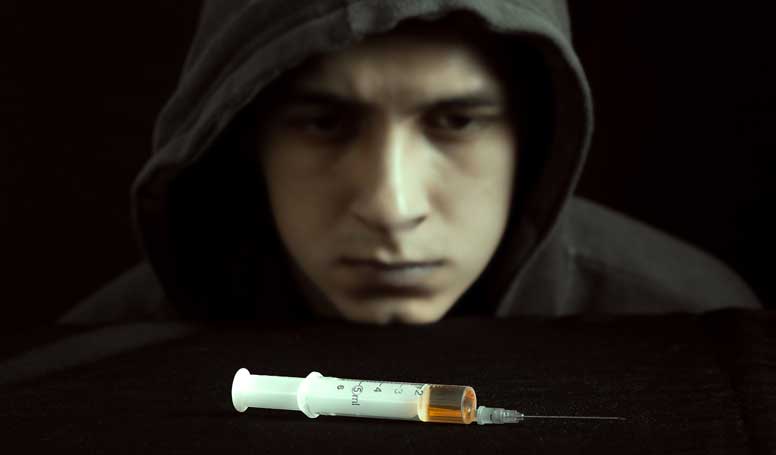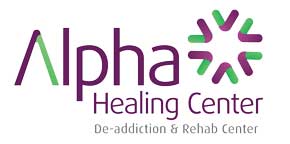Addiction Relapse Program
- Relapse Program
Alpha Healing Center has expertise in treating clients, who have relapsed after being to other rehabs & the relapse program is managed by experienced team of RCI registered therapists.
While recovering from addiction to alcohol and drugs, the term “relapse” is a common phrase that is used. Relapse is when an individual uses a substance after maintaining a period of abstinence. At Alpha Healing Centre, we are committed to helping our clients come up with a realistic and attainable relapse prevention plan. It is important for our clients and their loved ones to understand the magnitude of relapse, how to manage relapse, how to sustain relapse, and choose a center for relapse that is unique to the individual and their needs.

Relapse, Lapse, and Slip
It is essential to understand different types of relapse. A “slip” is when an individual’s use of alcohol or drugs is limited to a short amount of time. The safety risk of a slip is usually low, as the individual seeks treatment and sobriety immediately following their short period of use. It is important to remain supportive of the person who has engaged in the slip and encourage them to get back on track.
A “lapse” is a temporary lapse in judgement that may last longer than a slip, which is typically a one-time use. A lapse represents a temporary use to using substances and engaging in old patterns and behaviors. This person may isolate or go back to spending time with their old friends that still use and drink. It is always important that no matter what the situation may be to always remain supportive to the person engaging in a lapse.
“Relapse” is a longer, more sustained duration of use. Relapse unfortunately holds the risk of returning back to old behaviors and is at risk of their disease going back to full blown addiction. Relapse is often times more difficult for an individual to recover from, but it is absolutely possible. That is why it is necessary for the addict in recovery to come up with an action plan to avoid relapse and maintain their sobriety.
Different Types of Relapse
There are several types of behaviors that qualify as a “relapse.” It is important to note that each person’s recovery is unique to them. What is right for one person may not always be right for the other. However, it is important to understand the different types of relapse in order to come up with a strong relapse prevention plan.
Emotional relapse is when someone in recovery encounters stressors that trigger them to use. It is important for people in recovery to identify their basic needs, such as adequate amounts of sleep and a good diet. There will always be stress in life. However, these stressors that may seem simple to a non-addict could be what pushes a person in recovery to drink or use again. It is also important to have a therapist or a support group, such as a 12-Step program. This helps the addict utilize healthy tools that will help them manage their emotions and triggers. Signs of emotional relapse may include:
● Not expressing emotions.
● Isolating from people.
● Not attending 12-step or other support groups.
● Attending support groups, but not getting involved or sharing.
● Not taking care of physical needs, such as eating and sleeping properly.
● Focusing on other people’s needs and issues, rather than your own.
Peer pressure is another aspect that is important to address when it comes to relapse prevention. A person in recovery should not spend time with friends or family members that still use or drink. It is important for the recovering addict to find a new set of friends that encourage healthy choices and abstinence from substances. Pressure from old friends that still use is dangerous for a person in recovery. That is another reason why utilizing a 12-Step program such as Alcoholics Anonymous or Narcotics Anonymous is highly encouraged. This gives the recovering addict a chance to meet new people that have similar goals and paths as them, and helps with feelings of isolation.
How to Manage Relapse
Managing relapse is essential before the addict falls back into full blown addiction. It is important for the addict in relapse to have a person such as a family member or therapist that they can talk to immediately about their relapse. The addict may feel shame and guilt due to their relapse, which can further extend their period of use. It is also important for the people around the addict to not shame the addict and encourage them to get help.
Relapse is not a failure and is commonly a part of recovery. Consequently, it is important how an individual responds after relapse. It is important for the addict to reflect on what happened and what choices they can make to prevent relapse in the future. Perhaps the addict was spending time with old friends, isolated physically and/or emotionally, or did not reach out for help when experiencing a craving to use. Cravings are a very normal and expected aspect of recovery. The addict is changing every aspect of their life to achieve long term sobriety, and quitting the substance of their choice is only the first step. Identifying emotions and triggers is essential when managing relapse to prevent it from happening again in the future.
Is Rehab a Good Option to Treat Relapse?
Rehab centres can be a good choice for people who have fallen into relapse. Depending on the person’s severity of relapse, it may be necessary for them to go into a treatment center. The individual may need a medical detox that requires attention from a doctor or healthcare professional. Each person’s relapse is unique to them, and it is always highly encouraged to seek medical attention if a person has experienced a relapse. It can be extremely dangerous for a person to detox from drugs or alcohol by themselves and may need the proper care and medication from a healthcare team.
There are several different types of rehabilitation programs for addiction to drugs and alcohol. There is residential treatment, which requires the person seeking treatment to stay onsite at their facility for usually a minimum of 30 days. The individual will be required to participate in their treatment program, which focuses on identifying triggers and cravings, how to manage their triggers and cravings, mandatory testing, and limited contact to the outside world during their stay at residential treatment.
Outpatient treatment usually consists of meeting in a group setting for a few hours a day, 2-3 times a week. This allows the person seeking treatment to still maintain their responsibilities, such as work and parenting. Mandatory testing to hold the addict accountable is usually always required in outpatient treatment, as well. There are also options such as telehealth, which is a lower level of care for the person in recovery but can still be very helpful depending on the addict’s needs.
Sustaining Relapse
Sustaining relapse is essential to achieve and maintain long term sobriety. There are several factors that are crucial to lifestyle change that will ultimately help prevent relapse. Finding a support group that is right for the individual is highly recommended in recovery. It is important for the addict to connect with other people that are experiencing a similar journey to theirs. Support groups also provide a healthy means of socialization for the addict. Engaging in positive self talk, practicing meditation, and coping with unwanted feelings and emotions are all key to sustaining relapse.
It is important for the addict to understand that sometimes relapse is part of recovery. It is up to the addict in recovery to reach out for help and get the tools they need to have a successful recovery and find a healthy lifestyle that works for them. Relapse does not lessen their value as a person and does not make them a failure.
How to Go About Choosing the Right Center for Relapse
It is important for the addict seeking treatment to consult their doctor and care team when choosing the right center for relapse. The level of care for the addict may differ depending on the severity of relapse. It is important for the addict seeking recovery to understand all of their options and make the choice that would best help them recover from their relapse. Coming up with an attainable relapse prevention plan while seeking treatment is critical in order to prevent relapse in the future. Our team is committed to helping our patients achieve an abundant life while abstaining from mind altering substances.
Our team at Alpha Healing Center is committed to helping our patients achieve an abundant life while abstaining from mind altering substances. Upon arrival, each patient will complete an in-depth assessment. Our goal is to complete a plan that is best suited for each person’s needs that is unique to them. Alpha Healing Center provides top of the line care, including medical assessments, massage, farm fresh meals cooked by chefs, and private accommodations. Alpha Healing Center also ensures that each patient leaves with an aftercare plan to ensure long term sobriety and success.
- If you or your loved one is considering rehab, Alpha Healing Center can help you get started on your road to recovery from substance dependence. We can help create a unique substance abuse treatment program to address your distinctive needs. Don’t let substances continue to control your life; you can win this fight.
Confidential Form




